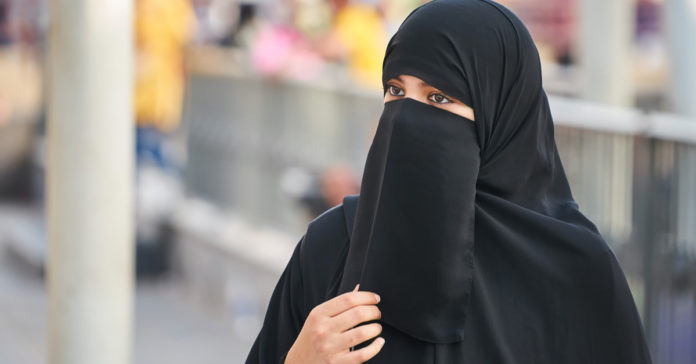Switzerland has proposed a £900 fine for anyone covering their face under a new law which criminalises the niqab.
The draft law was today sent to parliament by the Swiss government and includes several exemptions, including suggesting waiving the ban on aircraft, in diplomatic premises and places of worship.
Also, under the draft law, masks deemed necessary to protect oneself while exercising fundamental rights to expression and assembly would be allowed as long as authorities approved and public order was assured.
In a statement, the cabinet said: “The ban on covering faces aims to ensure public safety and order. Punishment is not the priority.”
Last year, voters in Switzerland narrowly backed a proposal to ban full facial coverings in public places despite the presence of hardly any niqabis in the country.
The ban was pushed by the Swiss People’s Party. One of its parliamentarians, Jean-Luc Addor, argued the ban would promote equality between men and women and would help fight against Islamic radicalisation.
The Islamic Central Council of Switzerland said the vote proved that Islamophobia had increased in Switzerland since the ban on minarets in 2009. It also vowed to pay any fines for those who choose to wear the niqab in the name of religious freedom.
Subscribe to our newsletter and stay updated on the latest news and updates from around the Muslim world!
In a statement last year it said: “Today’s decision opens up old wounds, further expands the principle of legal inequality and sends a clear signal of exclusion to the Muslim minority. The result comes as no surprise. As credibly and competently as the Federal Council conducted the referendum campaign, it neglected the phenomenon of ‘radicalising Islamophobia’ in society.
“Since 2015 it has been content to increasingly combat radicalisation tendencies among Muslims without taking the interdependent character of ‘Islamophobic radicalisation’ into account. Numerous studies and journalistic products have long since proven that among French ISIS sympathisers in particular, the feeling of discrimination, among other things in the wake of the niqab ban, had contributed to their radicalisation.
“In Switzerland, too, the ban will hardly contribute to weaken radicalisation tendencies – be it in Muslim milieus or on the part of right-wing nationalists. On the contrary, it is to be expected that the renewed success will give strength to the Egerkingen Committee (which launched the anti-burqa initiative). The committee’s executive board has already announced further attacks on the Muslim minority and its free exercise of religion.”







![The Taliban’s Road To Success [Short Film]](https://5pillarsuk.com/wp-content/uploads/2024/11/Kabul-roadworks-thumbnail-218x150.png)

![The History of Sylhet and British Bangladeshis [Short Film]](https://5pillarsuk.com/wp-content/uploads/2024/11/IMG_3518-218x150.png)





![The Taliban’s Road To Success [Short Film]](https://5pillarsuk.com/wp-content/uploads/2024/11/Kabul-roadworks-thumbnail-100x70.png)





